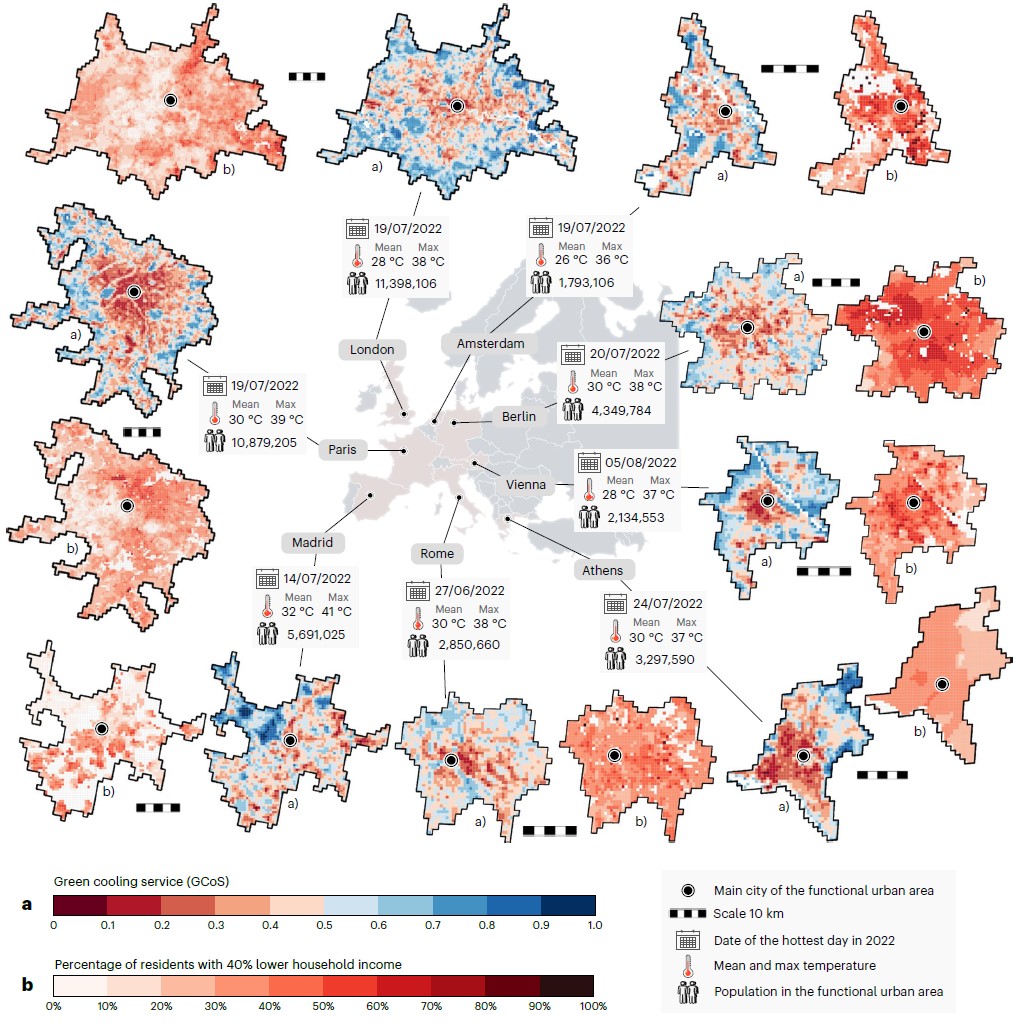All Science News

Study in Nature Cities reveals: Disadvantaged people suffer particularly hard from heat stress in major European cities
A new study led by the Technical University of Berlin, with the collaboration of FORTH and other European Universities and Research Centers, sheds light on the serious environmental injustice associated with heat stress in 14 major European cities. The paper in Nature Cities shows that heat-related health risks are unevenly distributed across the population, with vulnerable groups being particularly disadvantaged.
Prof. Dr. Birgit Kleinschmit and her team from TU Berlin and other European scientists, including Dr. Nektarios Chrysoulakis from FORTH, found that in all European cities studied, low-income residents, tenants, immigrants and the unemployed are provided with below-average green cooling. In contrast, wealthier residents, nationals and homeowners benefit disproportionately from the cooling effects of urban green spaces, which play a crucial role in reducing heat stress, providing natural cooling through shade and evapotranspiration.
Central urban areas as hotspots of heat stress - Contrary to the assumption that vulnerable groups mainly live in the suburbs, the study shows that they are often concentrated in central urban areas in need of renovation, which, at the same time, usually have few green spaces. This increases the risk of deadly heatwaves for these population groups, as they are often unable to afford either passive or active cooling measures.
Heat stress in Europe: a growing threat - Heat stress is the leading climate-induced cause of death in Europe. In recent years, the continents have been hit by several severe heatwaves, and forecasts predict an increase in frequency and intensity. Large cities are particularly affected, where the urban structure and sealed surfaces intensify the heat.
Demands and outlook - The results emphasise the need for political measures to create and more fairly distribute green spaces in urban areas. Investment in urban green spaces and targeted support for vulnerable groups can help mitigate the health consequences of heat stress.
Link to the publication “Unprivileged groups are less served by green cooling services in major European urban areas”: https://go.nature.com/3VeXYz4

Green cooling and lower-income spatial distribution for a selection of studied urban areas: a. The spatial distribution of the green cooling services index (GCoS) during the hottest day of 2022 in the main city; and b. the percentage of residents with 40% lower household income.
For more information, please contact:
Dr. Nektarios Chrysoulakis
Remote Sensing Lab, FORTH / IACM
100 N. Plastira Str., Vassilika Vouton, GR 70013
Heraklion, Greece
http://rslab.gr
Tel. +30 2810 391762






